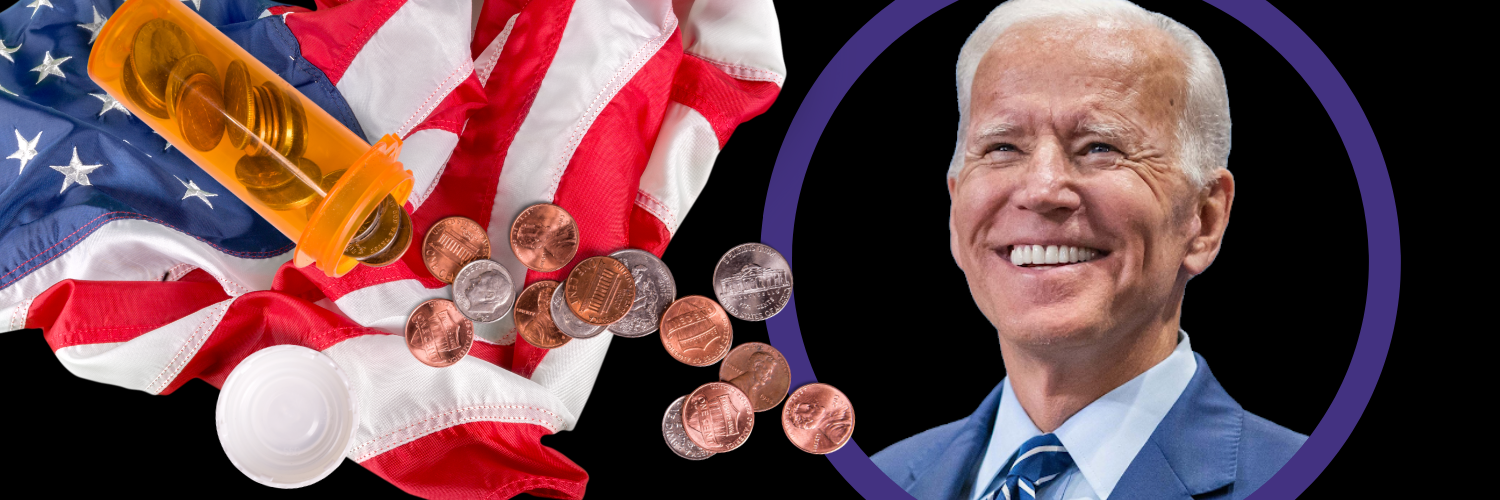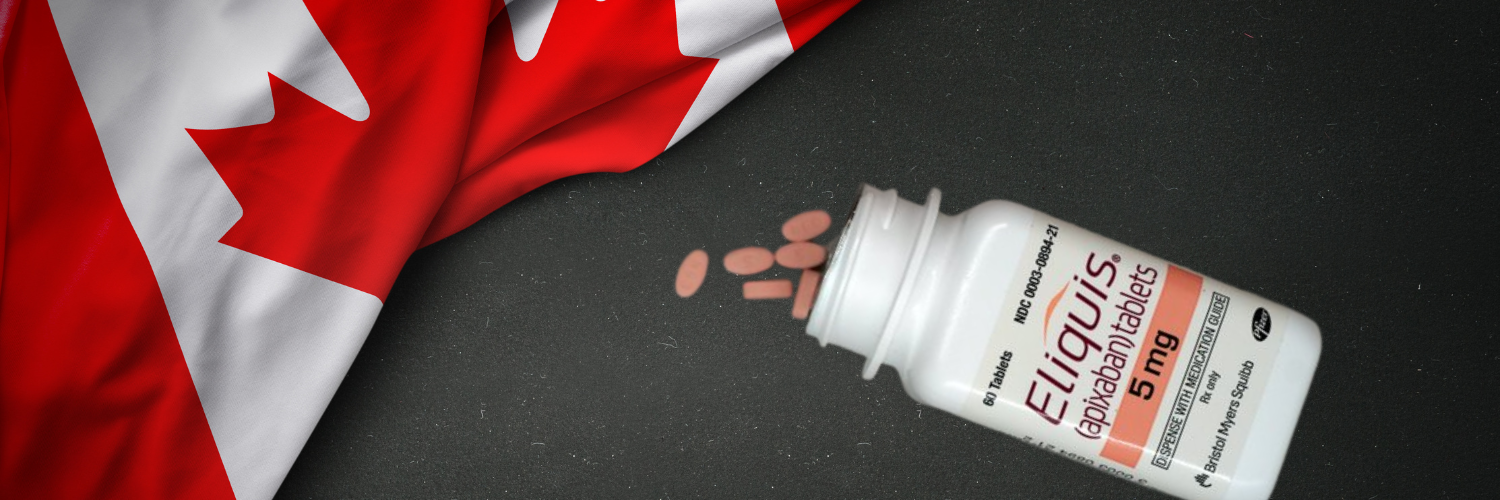Biden’s Plan to Lower Drug Prices. Did Trump help pave the way?

On his campaign website, President-elect Joe Biden asserted that he wants to “put a stop to runaway drug prices and the profiteering of the drug industry.” President Trump is famous for saying the drug companies are “getting away with murder.” Whatever the soundbite, drug prices are too high. And large, systemic changes are needed to bring them down.
Unfortunately for Americans, Trump’s bark was far bigger than his bite. He had four years in office, and drug prices are still climbing. However, by trumpeting (pun intended) policies most have associated with Democrats, he may have indeed forced Republicans to stay the course. Such efforts most notably include Trump’s executive orders, which dictate the following:
1) Medicare will no longer pay more for prescription drugs than high-income foreign countries, by using international reference pricing);
2) Expanded access to lower prices through wholesale drug importation from Canada; and
3) Expressly permitting, instead of just allowing it through FDA enforcement discretion, personally imported prescription orders from several countries with comparable pharmaceutical safety standards to the United States.
As Ian Spatz wrote in Manatt Health, these policies proposed “by a Republican president may mark a significant turning point in the long-standing national discussion of prescription drug prices. At a minimum, these late-term actions tee up prescription drug pricing as an early agenda item for the new Biden Administration and Congress.”
I agree.
Biden could and should pick up the proverbial football and run with it. First, a significant component to prescription drug affordability comes down to the quality of your health insurance, if you have any at all. If you’re not insured, then you’re paying the cash prices of prescription drugs, which commonly exceed $500/month for a brand name drug. According to the Commonwealth Fund, “the United States entered the pandemic with 30 million uninsured people and more than 40 million under-insured.” Research by FamiliesUSA from this past July showed that over five million more Americans may have lost their insurance due to the pandemic.
Biden supports what he calls the “public option” to choose Medicare health insurance. He opposes what is frequently called “Medicare-for-All.” Biden supports giving Americans the option to join Medicare. Medicare-for-All kicks private insurers to the curb by mandating government health insurance. Wherever we fall on the political fence, we can all agree that more Americans with health insurance is a good thing. Yet, as we learned from Obamacare, insuring more Americans, which it has, does not lower drug prices. During the Obama-Biden years, Big Pharma did get away with murder! Famously, Obama caved to the pharmaceutical industry to secure its support for his signature healthcare bill. From Politico:
“President Barack Obama’s landmark health care bill shook up the health care system. One key player escaped the upheaval largely unscathed: Big Pharma.”
But that was then, this is now! Below, you’ll find what Biden proposes; for some of it, Trump has pushed the envelope forward already. Other parts of Biden’s drug price plans are staples of the Elijah Cummings Lower Drug Costs Now Act (H.R. 3), pushed by the Democrats, which passed the House along partisan lines in 2019.
Ending the ban on Medicare drug price negotiations
Before there was Obamacare, there was the Medicare Prescription Drug, Improvement, and Modernization Act of 2003 (MMA), which, for the first time, gave pharmacy benefits to older and other Americans on Medicare known as Part D. Like the Obama administration in 2009, the Republicans felt they had to make a deal with Big Pharma in 2003 to pass the MMA. Famously, the law actually banned Medicare from negotiating drug prices. The Democrats have a longstanding goal to end that ban. In his first presidential election, Trump came out swinging hard in support of the principle of drug price negotiations in Medicare. Hey, let’s make a deal! Biden wants to end the ban, too, and allow Medicare to negotiate prices with the pharmaceutical companies.
Limit launch prices
Increasing drug prices is one problem. The launch price is another. This is especially the case for medical products referred to as biologics and other specialty drugs. For example, as I view U.S. price comparisons on PharmacyChecker.com, I notice that the drug company Gilead has not increased the list price of its hepatitis C drug Sovaldi since launching in 2014. Before you applaud Gilead, keep in mind that the launch price was $1,000 per pill, $84,000 for a three-month treatment!
Biden says he will create an independent review board to assess the value of new drugs. To establish fair prices, the board will use an “international reference price”: one based on the average price of a drug in several countries, such as Australia, Canada, France, Germany, and the UK. This is right out of the Trump playbook and that of many other countries that employ reference pricing to make drugs more affordable. If the drug is launched first in the U.S., which is not uncommon, then the board will have to come up with a “reasonable” price based on the value.
These will be the prices charged in Medicare and for the public option.
Tying drug price increases to inflation for “brand, biotech, and abusively priced generic drugs” or face tax penalties
Biden’s plan calls for stopping runaway train drug price increases. For some drugs, the launch price might be tolerable, but the year after year after year increases are unrelenting. Infamous in this group are pernicious price increases of critically important insulin products: Humalog, Lantus, and Novolog. Combined, prices on these drugs went up 300% over 10 years. Drug company Eli Lilly launched Humalog with a price tag of $20 in 1996. In 2019, it was priced at $270, a 1200% increase. That’s 18 times higher than the general rate of inflation between those years, which was only 65%. Had Eli Lilly kept the price tied to inflation, then Humalog would cost $33.49 today.
Under Biden’s plan, if a manufacturer wants to sell its drug in Medicare or the proposed public option, then it cannot increase its price above inflation; those who break the rules would face tax penalties.
Allow “consumers” to buy prescription drugs from other countries, as long as those drugs are certified safe by the HHS Secretary
The question here is whether Biden will actually do it. Of course, despite the federal prohibitions, Americans already do this by traveling to Canada, using an online pharmacy, or even through programs offered by some cities, towns, unions, and other self-insured entities. Yet it’s generally not expressly permitted, and the FDA is a close second to Big Pharma in scaring Americans away from it.
Trump’s executive orders included importation. For state and other non-federal entities who satisfy the safety requirements created by the FDA, wholesale importation (through which a licensed business imports medication for resale) is legal from Canada. Personal importation is not, but, under the executive orders, it has a fighting chance of gaining greater acceptability. Suffice it to say that Biden’s use of the words “allowing consumers” to import is encouraging on this front.
End tax deduction on Pharma ads
If you breathe here in the U.S., then you have seen or heard advertisements for prescription drugs. In 2018, pharma spent $6.5 billion advertising their products. How does that compare to other countries? In all other countries, except New Zealand, advertising drugs to consumers is illegal. In the U.S., critics of the pharmaceutical industry say that such advertising pushes drug prices higher because patients end up taking expensive brand-name drugs for which a perfectly good and far cheaper generic exists. Here’s the rub: us taxpayers help foot the bill because drug companies can deduct ad spending. Biden wants to nix those deductions.
Improving supply of quality generics, citing Leahy’s CREATES Act
Last, but not least, Biden wants to improve the availability of lower-cost generics by ending patent games played by drug companies to keep them off the market as long as possible. Sorry to say that Biden mentions the CREATES Act. Why? That Act would make it harder for patent-holding drug companies to stop generic drug companies from obtaining the samples they need to create a future generic. You’re right, that sounds good. And, in fact, the CREATES Act is already law. It passed in 2019. If Biden helps end other drug company patent games, such as pay-for-delay deals, where brand name drug companies pay off generic drug companies to postpone launching lower-cost generics, then you’ll be getting lower-cost drugs faster.
The Politics
The pharmaceutical industry is very, very powerful. Drug companies and their associations give millions of dollars to members of Congress each year in the form of campaign contributions and hundreds of millions each year to lobbying campaigns. The industry does not want new policies and laws that lower drug prices. Voters, however, on both sides of the political fence are outraged by high drug prices and agree on what to do about it.
Historically, Republican members of Congress were viewed as more aligned with Big Pharma than Democrats. But Trump has brought along tens of millions of Republicans to support the federal government’s bargaining power and size to lower drug costs. It will be hard to turn the tide around.
Democrats in Congress have also taken big bucks from the drug companies. However, last year they passed a bill, The Elijah Cummings Lower Drug Costs Now Act. The bill called for commonsense, serious policy actions to lower drug prices. It was a partisan bill and the Senate, which is controlled by Republicans, wouldn’t touch it. Republican Senator Chuck Grassley of Iowa pushed a different drug prices bill, which the Democrats shied away from. With cooler heads hopefully surfacing in the wake of a hostile political season, there can be a consensus.
As divided as we are right now, Biden has an opportunity to work with Republicans – and vice versa – specifically on drug prices because of how all voters feel. Let’s hope that together they succeed.




